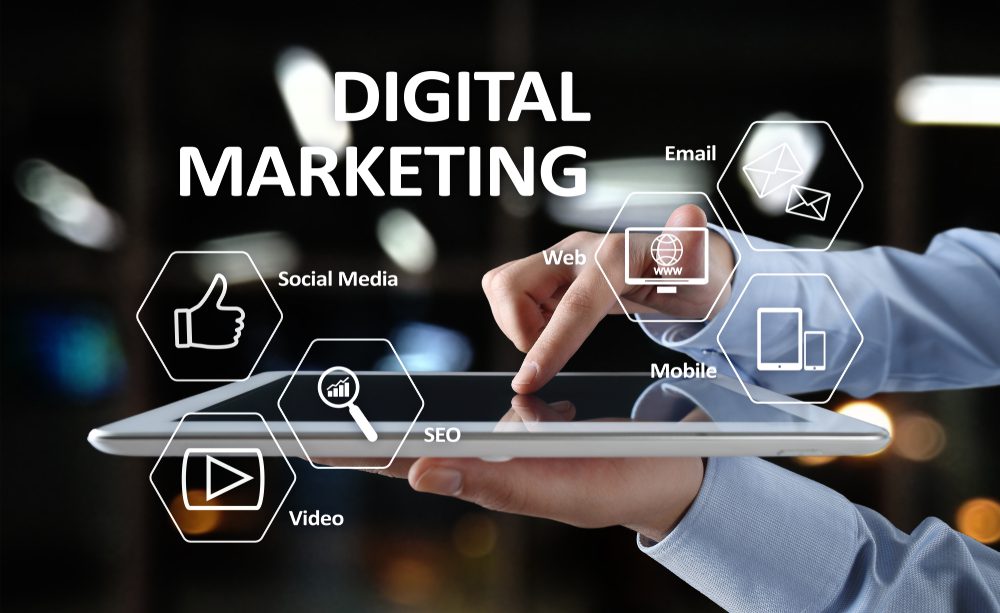The future of digital marketing and the impact of emerging technologies
The digital marketing landscape has undergone significant changes in recent years, with new technologies and advancements emerging at a rapid pace. To remain competitive in this ever-evolving market, it’s essential for businesses and marketers to stay informed and proactive in adapting to these advancements.
The future of digital marketing is shaped by the impact of emerging technologies, which are changing the way we connect with customers and deliver messages. From artificial intelligence and machine learning to voice search and virtual assistants, the future of digital marketing is defined by emerging technologies that are transforming the way we do business.
As these technologies continue to mature, they will have a profound impact on the way marketers connect with customers and reach their audiences. It’s essential to understand the advancements in emerging technologies and how they are affecting the future of digital marketing.
Here are some of the advancements in emerging technologies and their impact on digital marketing:
The Benefits and Opportunities of Artificial Intelligence (AI) and Machine Learning (ML)
AI and ML are transforming the way marketers personalize and automate their campaigns. From chatbots to predictive analytics, these technologies are helping marketers create more targeted and efficient campaigns, resulting in increased conversions and a higher ROI.
A survey conducted by Narrative Science, found 56% of organizations using AI in their marketing processes reported improved customer experiences, while 49% reported increased conversion rates. This ensures that customers can receive instant inquiries on a product or service reducing the need to personally call or email your business.
The Growth of Voice Search and it’s Implications
The rise of voice search and virtual assistants such as Siri, Alexa, and Google Assistant are changing the way people search for information online. According to OC&C Strategy Consultants. 55% of households had a smart speaker in 2022, therefore marketers must now optimize their content for voice search, as well as ensure their websites are mobile-friendly and easily accessible through these devices
Engaging Consumers with Dynamic, Interactive Experiences in digital marketing
Interactive content such as quizzes, polls, and augmented reality experiences are becoming increasingly popular with consumers. Using any of these interactive methods can drive up to two times the conversions compared to passive content (Content Marketing Institute). By engaging users in a more interactive way, marketers can build a stronger relationship with their audiences and create a more memorable brand experience through interactivity.
Leveraging Social Media for Effective Marketing Outreach
Social media continues to play a crucial role in marketing, and this trend is only set to continue growing in the future. The number of global social media users is expected to reach nearly 4 billion by 2025, up from 2.95 billion in 2018 (Statista).
The constant growth of users on all social media platforms means that the use of social media influencers, paid social media advertising, and the rise of new platforms such as TikTok are extremely important to use as a part of your digital marketing campaign.
The Benefits of Video Content for Brands
Video content continues to dominate the digital landscape all on social media platforms. Video marketing provides a more immersive and engaging experience for users, and it can be a highly effective way to build brand awareness, drive traffic, and increase conversions.
According to a report written by Cisco, video accounted for 82% of all internet traffic by 2022, which rose from 73% in 2017. This growth highlights how important it is for businesses to have a consistent video schedule as a part of their digital marketing campaigns.
Customizing the Customer Experience with Personalization
Personalization is becoming increasingly important in digital marketing, as consumers expect brands to understand their needs and provide relevant, personalized experiences. Personalized emails deliver an open rate that is 26% higher compared to non-personalized emails (Epsilon).
Using personalized emails as a part of a digital marketing campaign can help you get the foot in the door with some consumers. From personalized email campaigns to customized product recommendations, marketers must now use data and technology to deliver truly personalized experiences at scale.
Embracing Change and Staying Ahead of the Game
The future of marketing is being shaped by the impact of emerging technologies such as artificial intelligence, machine learning, voice search, and virtual assistants. These technologies are transforming the way businesses connect with customers, providing more personalized experiences and improving the efficiency of interactions.
By leveraging these emerging technologies, businesses can improve their marketing outreach, reach a wider audience, and enhance the customer experience. The future of digital marketing is bright, and it is exciting to see how these technologies will continue to shape the industry and drive innovation.


